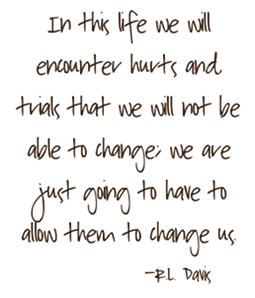Information was taken from the Trisomy 18 Foundation......
What Is Trisomy 18?
Trisomy 18, also known as Edwards syndrome, is a condition which is caused by a chromosomal defect. It occurs in about 1 out of every 3000 live births. The numbers increase significantly when early pregnancy losses are factored in that occur in the 2nd and 3rd trimesters of pregnancy.
Unlike Down syndrome, which also is caused by a chromosomal defect, the developmental issues caused by Trisomy 18 are associated with medical complications that are more potentially life-threatening in the early months and years of life. 50% of babies who are carried to term will be stillborn, with baby boys having higher stillbirth rate than baby girls.
At birth, intensive care admissions in Neonatal units are most common for infants with Trisomy 18. Again, baby boys will experience higher mortality rates in this neonatal period than baby girls, although those with higher birth weights do better across all categories.
Some children will be able to be discharged from the hospital with home nursing support for their families. And although less than 10 percent survive to their first birthdays, some children with Trisomy 18 can enjoy many years of life with their families, reaching milestones and being involved with their community. A small number of adults (usually girls) with Trisomy 18 have and are living into their twenties and thirties, although with significant developmental delays that do not allow them to live independantly without assisted caregiving.
How is Trisomy 18 diagnosed?
A lot of prenatal testing is available which may indicate Trisomy 18. It is important to understand that there are two types of testing:screening and diagnostic.
Screening tests indicate a risk, or likelihood that Trisomy 18 is present. These tests take the results of everyone who has had the same testing, and they compare your specific results with that group. Then they use statistics to identify the odds that it is present in your child, based upon the number of times others with the same test results have had children with Trisomy 18 in the past.
This is much the same way that weather is forecast, by saying there is a 20% chance of rain because 20% of the time, when the conditions were the same, it has rained. Just as the weather forecast is not completely accurate, screening tests are not a diagnosis but only an indication that the risk is higher than normal.
The following are screening tests, which CANNOT diagnose Trisomy 18 (click on the link for detailed information about the test):
AFP (also known as triple screen, quad screen, maternal serum screening)
Ultrasound (standard, level II, level III, 3D)
Diagnostic tests check actual cells and can determine if Trisomy 18 is actually present. This is a diagnosis, since the condition has actually been found in the cells.
The following are diagnostic tests, which CAN diagnose Trisomy 18. (click on the link for detailed information about the test)
CVS (Chorionic Villi Sampling)
Amnio (Amniocentesis, FISH test)
Knowing which test was used is important in deciding what your next steps are.
Making Decisions After a Prenatal Diagnosis
This is a very difficult time, and unfortunately there is no magic choice that will make this experience easier.
Take your time and learn as much as you can so you can make informed decisions.
Take your time and learn as much as you can so you can make informed decisions.
If you have been diagnosed while you are pregnant:If you have positive results on a screening test we recommend that you discuss this with your doctor and a genetic counselor. Your medical providers will talk about diagnostic testing options with you. The decision about whether to have these tests is up to you. If a diagnostic test comes back positive for Trisomy18, the results should be discussed with experts, including a medical geneticist, a genetic counselor, as well as your own doctor.
Learn More: Expecting a Child
Learn More: Expecting a Child
If your child was diagnosed after birth:If your child was diagnosed after birth, your child will be receiving specialized care from the hospital and his or her doctors will be helping you learn how to best care for your child .
Learn More: Caring for a Child
Learn More: Caring for a Child
After the Diagnosis:
- Take your time before making critical decisions
- Ask questions and ask for explanations of anything you don’t understand
- Know as much as you can; make sure the information is current
- Read other parents’ stories
- Be informed about medical conditions
- Know it’s okay to grieve the loss of the child you envisioned
- Share with other parents in our Online Support Community
- Know that every pregnancy and every child is different
- Find medical professionals who are on your side
- Find support
Remember, whatever happens, you are still a parent!
Interested in making a donation to the Trisomy 18 Foundation? You can do so here.















0 comments:
Post a Comment